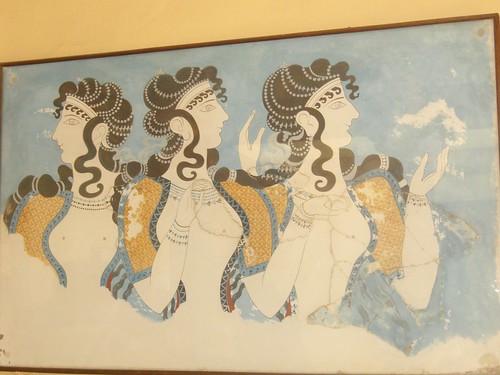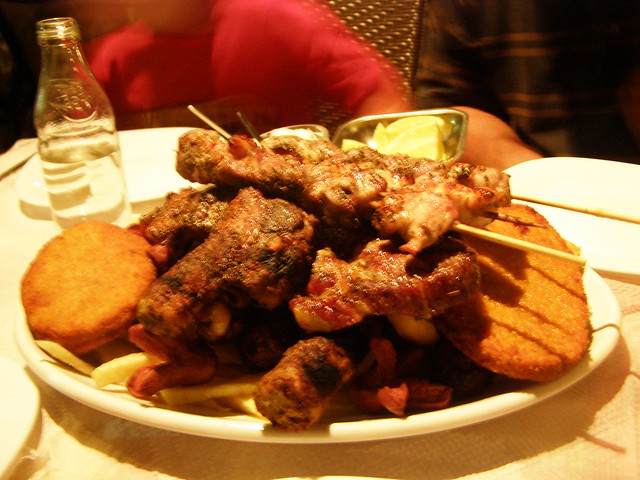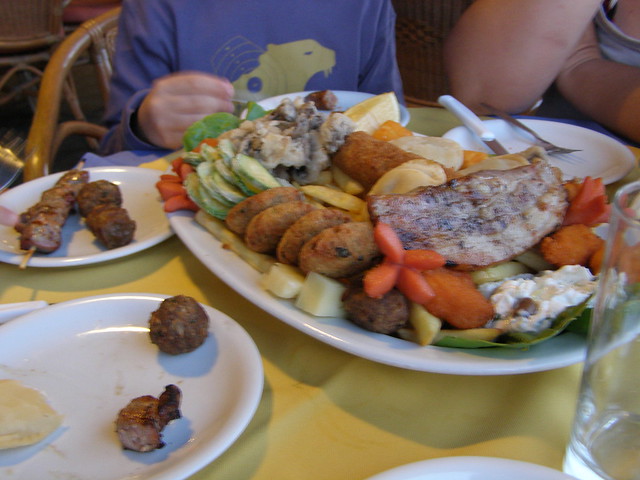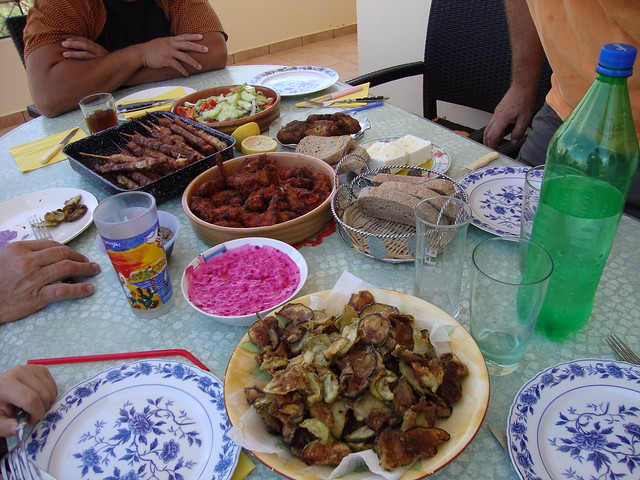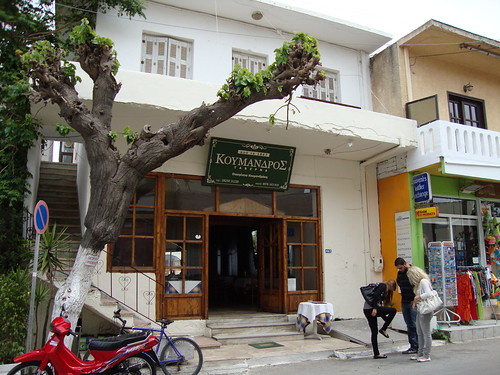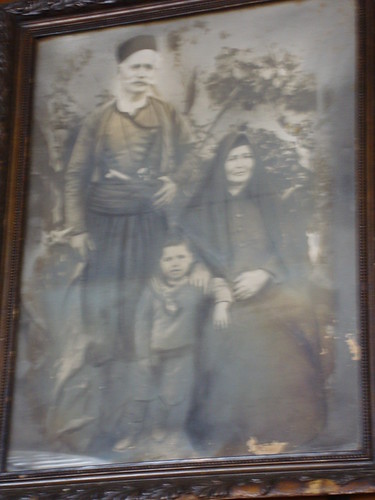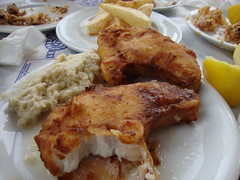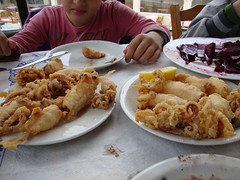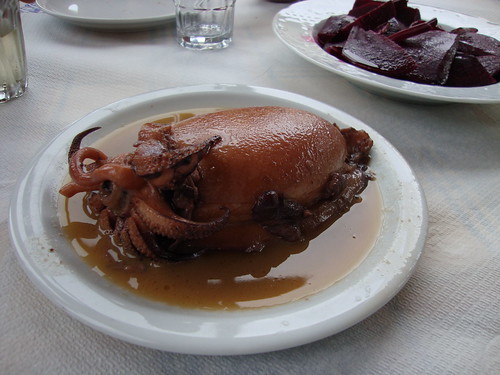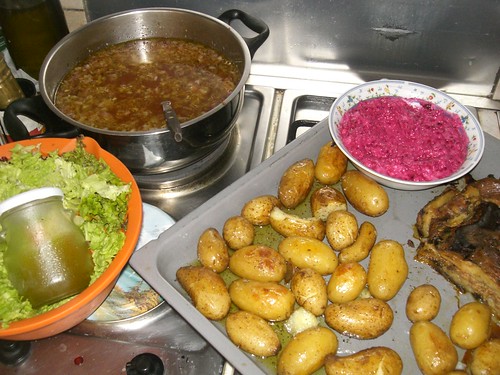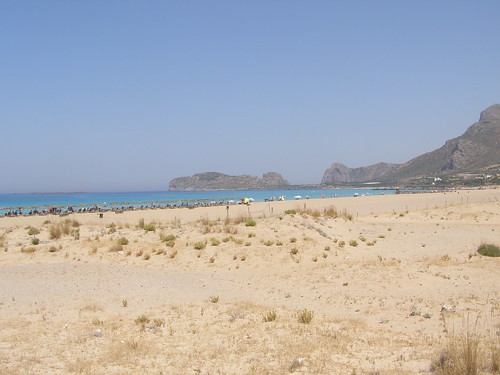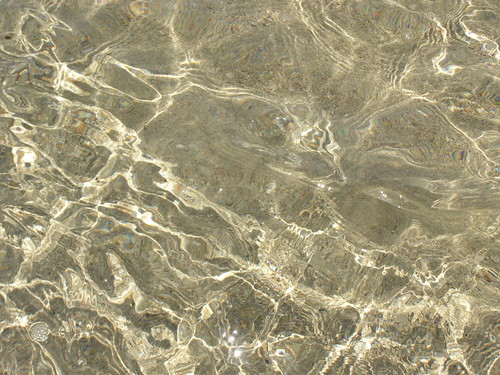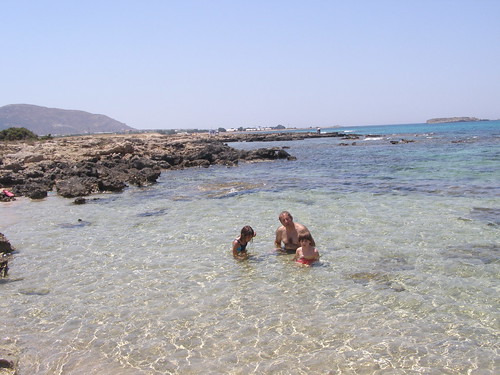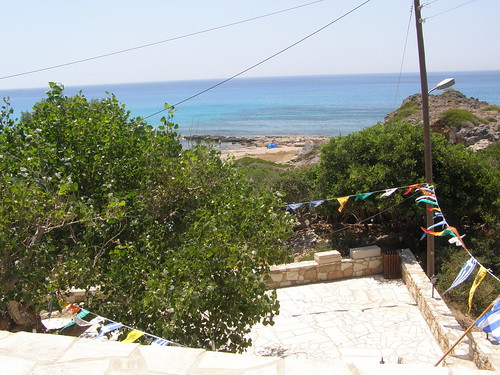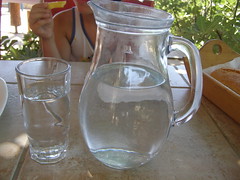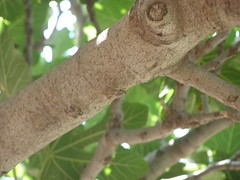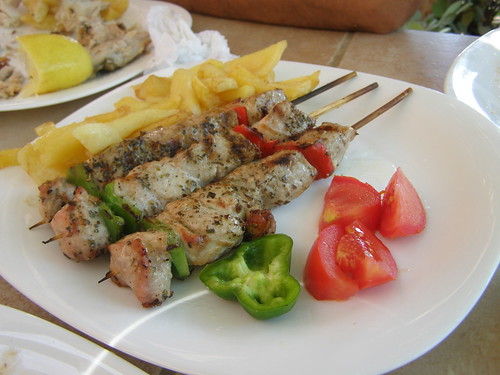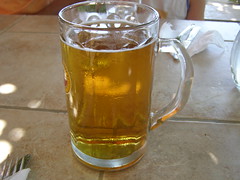It's easy for me to say that I don't need to go away on a summer holiday because I live on a summer holiday island. I can sleep at the cheapest hotel (my home), eat at a good restaurant (my kitchen) and swim at the best beaches (we live close to them) without paying much. I guess one could say that we have discovered the key to a balanced life. But as a very precious friend recently pointed out to me, balancing is all about teeter-tottering; there is the constant risk that the scales will not stay in the same position, and without even expecting it, you might fall over - because you lost your balance.

The truth is that the scales never do stay in the same position, except when nothing changes on either side. In the real world, this is not possible - everything changes by the minute, especially in the rapidly changing Greece of our times. So the scales are teeter-tottering all the time. Life can become very unbalanced by just one minor incident, something as mundane as checking the mailbox or hearing the tyres of a car screech outside your house.

So our balanced life is not really quite as balanced as we like to believe: by staying at home for the summer holidays, even when we go to the seaside in the afternoon, or even a short day trip away from our home base, in essence, we do not stop working or thinking about work. We continue to work at our paid day jobs, we keep in mind our unpaid jobs (the garden, the fields, food processing/preservation), and we still have to do the dishes after each meal. What's more, we continue to see the same view from our windows, which is not an ugly one at all, but it's only natural to stop appreciating it at some time due to the boredom factor - we want to see something new.

What most people do to get away from the stress of the daily routine is to completely disconnect, leaving auto-messages in their email and letting their inbox fill with messages. My friend told me that she returned to the office to find 1400 emails waiting to be answered; so her disconnection could have created new stress on her return. But she has foreseen this situation too: what you really need to do, as my friend explained, is not to balance your life, but to harmonise it, to make it agree with the continuous barrage of new situations that we find ourselves confronted with on a daily basis. Life never moves backwards; it carries on in a forward direction, and to maintain a balance, we need to harmonise our present with our perpetually changing future.

So tonight, we're going to start packing our suitcases, gathering together some picnic supplies and filling up our beach bags, in an attempt to leave behind our regular schedule, just before the new school term begins. That way, when we return home and when people ask us where we went for our holidays, we can say that we left our home for 3-4 days to take a break from routine. Even if our holiday destination does not take us beyond the borders of our island, some time away from home feels like a proper holiday; the feeling of sleeping in a different bed and eating something I didn't prepare or cook myself (and not clearing the table and doing the dishes) give us all a sense of being on holiday even if the destination was close to home. At any rate, there is wi-fi everywhere these days, so I don't suppose I'll stay disconnected for long.
©All Rights Reserved/Organically cooked. No part of this blog may be reproduced and/or copied by any means without prior consent from Maria Verivaki.

This very pretty beach is close to my home. I can go whenever I like, even in the winter. But do I do this often? No, because there are other priorities to attend to after work.
The truth is that the scales never do stay in the same position, except when nothing changes on either side. In the real world, this is not possible - everything changes by the minute, especially in the rapidly changing Greece of our times. So the scales are teeter-tottering all the time. Life can become very unbalanced by just one minor incident, something as mundane as checking the mailbox or hearing the tyres of a car screech outside your house.

September is when the grapes start tasting like wine if you don't harvest them quickly enough.
So our balanced life is not really quite as balanced as we like to believe: by staying at home for the summer holidays, even when we go to the seaside in the afternoon, or even a short day trip away from our home base, in essence, we do not stop working or thinking about work. We continue to work at our paid day jobs, we keep in mind our unpaid jobs (the garden, the fields, food processing/preservation), and we still have to do the dishes after each meal. What's more, we continue to see the same view from our windows, which is not an ugly one at all, but it's only natural to stop appreciating it at some time due to the boredom factor - we want to see something new.

The sea of olive trees that forms our view from our balconies is interspersed with various low buildings, mainly houses; it remains the same throughout the year, as olive trees are evergreens. The greatest change that may take place here is that I will see some snow on the mountaintops.
What most people do to get away from the stress of the daily routine is to completely disconnect, leaving auto-messages in their email and letting their inbox fill with messages. My friend told me that she returned to the office to find 1400 emails waiting to be answered; so her disconnection could have created new stress on her return. But she has foreseen this situation too: what you really need to do, as my friend explained, is not to balance your life, but to harmonise it, to make it agree with the continuous barrage of new situations that we find ourselves confronted with on a daily basis. Life never moves backwards; it carries on in a forward direction, and to maintain a balance, we need to harmonise our present with our perpetually changing future.

Tsigariasto (slow-cooked lamb in the pot, stewed in olive oil and wine) - it is often served with fried potatoes. This is pretty much what it looks like when served at a restaurant. This formed our Sunday meal, cooked the previous evening, to allow us to spend the morning at the beach.
So tonight, we're going to start packing our suitcases, gathering together some picnic supplies and filling up our beach bags, in an attempt to leave behind our regular schedule, just before the new school term begins. That way, when we return home and when people ask us where we went for our holidays, we can say that we left our home for 3-4 days to take a break from routine. Even if our holiday destination does not take us beyond the borders of our island, some time away from home feels like a proper holiday; the feeling of sleeping in a different bed and eating something I didn't prepare or cook myself (and not clearing the table and doing the dishes) give us all a sense of being on holiday even if the destination was close to home. At any rate, there is wi-fi everywhere these days, so I don't suppose I'll stay disconnected for long.
©All Rights Reserved/Organically cooked. No part of this blog may be reproduced and/or copied by any means without prior consent from Maria Verivaki.















